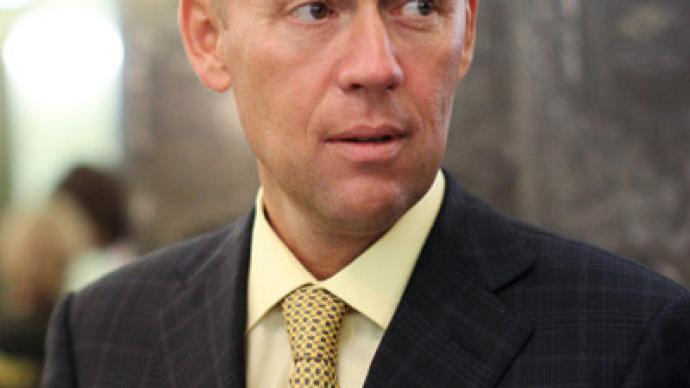Former Soviet KGB agent Aleksandr Litvinenko died a slow, torturous death in London on November 23rd 2006 – poisoned by radioactive polonium. The case is still open – and a definite thorn in relations between Russia and the UK.
The original suspect in the case, Russian politician and former security officer Andrey Lugovoy, has diplomatic immunity and cannot be prosecuted. Numerous requests by the British have been rejected by Russia for constitutional reasons– and in turn, Britain refuses to hand over the evidence they’ve gathered on Lugovoy so that Russia can conduct its own investigation. And as author and Russia expert Martin McCauley told RT, the impasse must be overcome. “This is unfortunately the key barrier to improved relations between Moscow and London. And in the interests of both governments, it would be very welcome if this case could be solved”, McCauley said. “You can’t do anything with Lugovoy, he’s beyond prosecution – so if you’re going to move the case forward, you have to find somebody else who doesn’t have immunity and build a case against him.”It would seem that the British authorities have, in fact, found that somebody else – Lugovoy’s former colleague Dmitry Kovtun. He was at the Millennium Hotel where Litvinenko was allegedly poisoned, and later German police found traces of polonium in his Hamburg apartment. But even back then, the trail went cold. And as Kovtun himself told RT, he is ready to present his side of the story. “I’ve already been a suspect once in this case”, Kovtun said. “I’m ready for all possible developments in the case. I’m just glad I will have the chance to defend my innocence, to state my side. Both mine and Lugovoy’s positions in this case are unshakable –and we will prove it in court”. For his part, the Russian parliamentarian will not attend the hearings – but has agreed to give evidence via videofeed. He has welcomed the new stage of the investigation, claiming that a lot of new information is coming out; information he previously drew attention to – and was denounced for. Lugovoy also stated that the best way to solve the case would be to figure out exactly who stood to gain from Litvinenko’s death. He himself has a number of thoughts on the matter. “[Exiled Russian tycoon] Berezovsky, because Litvinenko was informed about how he received political asylum and he had told me about it more than once. And looking at Berezovsky’s deceitfulness, it’s entirely possible. Second, of course, the British secret service”, Lugovoy told RT. “I’m not saying they prepared the killing, you can expect anything from these boys, but they were close by, and I say again, Litvinenko wasn’t working independently. And third, and this is only his word, he said he was helping the Spanish police to fight the Russian mafia, gave them some sort of information from that time” The Litvinenko saga has definitely impacted relations between Britain and Russia. The accusations, negotiations and open case files definitely loosened ties between the two – but recently, it seems, a new page is slowly being turned. Prime Minister David Cameron visited Moscow earlier this year and talked openly about the case; business ties are strong. But the case still remains a permanent fixture; a peripheral ghost, demanding closure. It is not just political and legal interests, however. With all the media attention and unsolved status, the story was deemed perfect for the big screen. British director Rupert Wyatt is rumored to shed some light on the case – or at least the script, based on a book about the former KGB agent’s life and death. What will come first – the opening of ‘Londongrad’ or the closing of Litvinenko’s case – is anybody’s guess.

